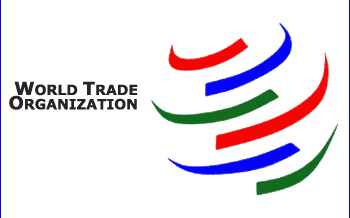
December 17, 2013
Criticisms of foreign aid usually come around eventually to trade and investment as the ‘real’ answer for growth, development and poverty reduction. This either/or debate, unhelpful at the best of times, was momentarily drowned out early in December by a tsunami of positive news about a breakthrough agreement reached at the World Trade Organization summit in Bali.
‘We have saved the WTO,’ gushed European Trade Commissioner Karel De Gucht. The agreement represents a ‘rejuvenation of the multilateral trading system‘ according to the Obama administration. ‘For the first time in our history, the WTO has truly delivered,’ a tearful WTO chief Roberto Azevedo told the world’s 159 trade ministers present. And much of the world’s media dutifully fell in line behind the jubilation.
In fact, however, the agreement was small – a bit like a parade in Campbell River that didn’t get rained on. It was actually the first multilateral agreement of any significance in the WTO’s 18 year history, and the first outcome of any kind in the so-called Doha Round of discussions, which have dragged on since 2001. If the Bali talks had ended in deadlock, as they nearly did, the parade might have been cancelled forever.
Originally, the idea of the Doha Round was that developed countries would open their markets to agricultural products from developing countries. Developing countries in turn would cut tariffs on manufactured goods from rich countries. This failed because of powerful European and American farm lobbies. The US government, for example, supported American rice farmers with tariffs on imported rice and a range of farm subsidies to the tune of $13.1 billion between 1995 and 2012.
Meanwhile, developing countries have sought to build their manufacturing sectors the same way developed countries have: by using tariff barriers to protect them from external competition.
The Bali talks nearly failed because India argued that it should be allowed to pay its farmers higher-than-market prices for the crops it buys for food stockpiles – a subsidy justified on the grounds of food security. Rice exporting countries such as Thailand, Pakistan and the United States argued that overpaid Indian farmers might undercut their own production. In the US case, this was like a debate between a sooty pot and a blackened kettle, but never mind: India, some said, was going against the spirit of free and open trade, which aims to decrease rather than increase government involvement in the marketplace.
India won. The issue was postponed until December 2017. Meanwhile, countries such as Canada are busily establishing their own bilateral trade deals with whatever good-looking partner they can find, and China sucks up the world’s manufacturing jobs, flooding the globe – including developing countries – with ever-increasing volumes of cheap output.
So the Bali ‘breakthrough’ was mainly about trade facilitation: cuts to red tape and bureaucratic delays in shipping – especially good for companies that ship stuff, but not of much immediate significance to farmers or (potential) manufacturers in poor countries. If the agreement is ratified between now and 2015, it will undoubtedly improve market access for some developing countries and it will contribute to growth in world trade. And the WTO, seen to be on life-support over the past couple of years, can be taken off the ventilator.
The bigger issues of food security, farm subsidies, manufacturing, and how they relate to the development of the world’s poorest countries, however, have been kicked down the road yet again.
